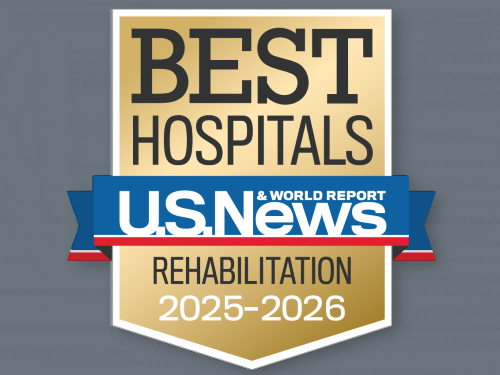 Aiyana “Yani” Jones came to the Disorders of Consciousness (DoC) Program at TIRR Memorial Hermann after autoimmune encephalitis left
her in a near-comatose state. Yani
had just been diagnosed with lupus;
it was the summer of her junior
year of college, and the disease had
caused severe complications.
Aiyana “Yani” Jones came to the Disorders of Consciousness (DoC) Program at TIRR Memorial Hermann after autoimmune encephalitis left
her in a near-comatose state. Yani
had just been diagnosed with lupus;
it was the summer of her junior
year of college, and the disease had
caused severe complications.
“She went through a lot,” recalls Yani’s aunt, Paulette. “She had a tracheotomy; they had to remove fluid from her brain. They had to remove all of her hair to perform surgery. She was in the hospital for about two months before she went to TIRR Memorial Hermann for rehab.”
Clinicians in the DoC Program carefully assessed Yani to detect signs of consciousness. Despite being characterized as near comatose while in the acute-care hospital, the care team quickly found out that Yani was actually able to understand and follow commands with her right arm.
“It’s common that we see patients mislabeled as either in a comatose state or a vegetative state while they’re actually able to perform tasks like answering questions accurately,” explains Jean Woo, MD, an attending physician in the Brain Injury Program at TIRR Memorial Hermann. “Usually, in acute care hospitals, their main goal is to keep patients alive and medically stable, so they don’t have the manpower or the resources to look for all these subtle behaviors to assess patients’ level of consciousness.”
Dr. Woo and her team worked with Yani to help her answer “yes and no” questions by moving her arms: one motion for “yes,” a different motion for “no.”
 “It can still be really hard to
communicate because I cannot ask
open-ended questions such as ‘How
do you feel?’. We have to use questions
such as, ‘Are you feeling okay?’”
Dr. Woo notes. “It’s better than not
having any communication system,
but patients are kind of held hostage
to our questions. If we’re not asking
the right questions, there’s no way
the patient can express what they
want to express.”
“It can still be really hard to
communicate because I cannot ask
open-ended questions such as ‘How
do you feel?’. We have to use questions
such as, ‘Are you feeling okay?’”
Dr. Woo notes. “It’s better than not
having any communication system,
but patients are kind of held hostage
to our questions. If we’re not asking
the right questions, there’s no way
the patient can express what they
want to express.”
Once Yani demonstrated that she could accurately answer questions, she moved on to using alternative augmentative communication, where she wrote sentences by navigating a board with letters. It was slow-going, but Yani never hesitated in her recovery.
“She’s a fighter,” says another aunt, Angela. “The staff at TIRR Memorial Hermann never left her out of the loop. They included her in all conversations, everything. They allowed her to help with her recovery decisions.”
Communication was the first step in regaining function and played a major role in helping Yani engage with her other rehabilitation interventions. Yani worked hard to rebuild strength in her muscles and to relearn abilities such as swallowing, while tapering off sedating medications that had been used to keep her stable.
“The therapy that she got at TIRR Memorial Hermann was great,” Paulette says. “They worked with her a lot, and they worked with our family a lot, just trying to get her to a point where she could function as much as possible. She’s doing great.”
Eventually, with the support of her family, Yani returned to college through online courses while attending rehabilitation. Now, Yani is able to drive a power wheelchair, swallow food and fluid by mouth without requiring supplemental nutrition via feeding tube and type on her cellphone and tablet for communication as well as schoolwork. After graduating with a degree in biology and a minor in Spanish, Yani was admitted to graduate school and is working toward a master’s degree.
“She’s a college graduate, and in grad school right now; she’s very intelligent,” Angela says. “She knows what she wants, what she’s going to accept, what she’s going to allow. She’s not going to let just anything happen.”

Nationally Ranked Rehabilitation
For the 36th consecutive year, TIRR Memorial Hermann is recognized as the best rehabilitation hospital in Texas and No. 2 in the nation according to U.S. News and World Report's "Best Rehabilitation Hospitals" in America.
Learn more about TIRR Memorial Hermann rankingsContact Us
If you have questions or are looking for more information, please complete the form below and we will contact you.